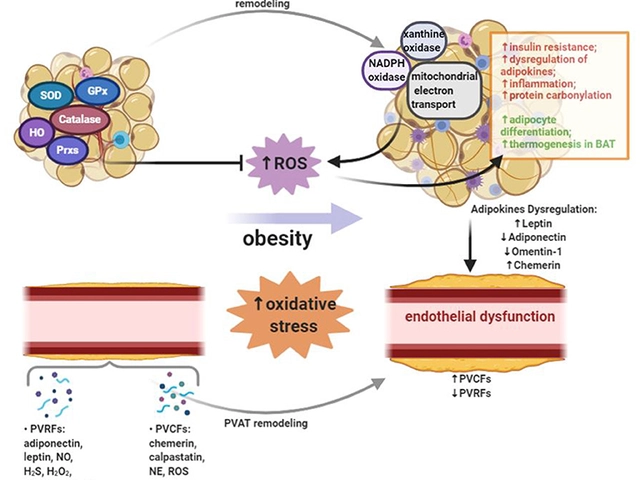Comparing Diltiazem HCL to Other Calcium Channel Blockers: A Comprehensive Guide

In the complex world of heart medication, calcium channel blockers play a vital role in managing conditions like hypertension and angina. Among these, Diltiazem HCL stands out for its unique properties and benefits, but how does it compare to other available options?
First, let's understand the basics of calcium channel blockers. These medications help to relax blood vessels, making it easier for the heart to pump blood and reducing its workload. Commonly prescribed to manage high blood pressure and chest pain, they're a cornerstone in cardiovascular treatment.
One of the key players in this drug category is Diltiazem HCL. Known for its effectiveness in controlling heart rate and reducing blood pressure, it offers a dual action by both dilating the blood vessels and slowing down the heart rate. This makes it a preferred choice for many clinicians.
We'll also look at some other calcium channel blockers, like Amlodipine and Verapamil, to see how they stack up against Diltiazem HCL. Each of these drugs has its benefits and side effects, and understanding these can be key to choosing the right one for your specific needs.
Lastly, we'll share some tips on how to work with your healthcare provider to find the best calcium channel blocker for you. After all, the goal is to tailor your treatment to ensure you get the maximum benefit with the least risk of side effects.
- Introduction to Calcium Channel Blockers
- Benefits of Diltiazem HCL
- Comparing Diltiazem HCL to Other Calcium Channel Blockers
- Tips for Choosing the Right Medication
Introduction to Calcium Channel Blockers
Calcium channel blockers (CCBs) have become essential in the treatment of heart-related conditions mainly due to their effectiveness and versatility. At their core, these drugs help manage high blood pressure (hypertension) and chest pain (angina), among other cardiovascular issues. By relaxing the muscles of your heart and blood vessels, CCBs make it easier for the heart to pump blood. For many patients, these drugs are lifesavers.
Calcium plays a crucial role in the contraction of the heart muscle. It enters the cells of the heart and blood vessel walls through calcium channels. By blocking these channels, CCBs reduce the heart's workload and widen the blood vessels, which lowers blood pressure and decreases the pain of angina. It's like easing a traffic jam on a busy highway, allowing blood to flow more freely.
One of the known benefits of CCBs is their ability to treat both high blood pressure and angina. This dual action makes them quite valuable in the medical field. There are three main types of CCBs: dihydropyridines, nondihydropyridines, and benzothiazepines. Each group targets different aspects of cardiovascular health. For instance, dihydropyridines are more effective at relaxing blood vessels, while nondihydropyridines are better at controlling heart rate.
A commonly prescribed calcium channel blocker is Diltiazem HCL, which falls into the benzothiazepines category. It's known for its versatility in treating high blood pressure and angina. But how does Diltiazem HCL compare to other medications within the same class? It’s important to note that patient responses to CCBs can vary, which is why healthcare providers may try several medications before finding the best fit.
According to the American Heart Association, “Calcium channel blockers relax and dilate the arteries so that blood can flow more easily, reducing the workload on the heart.” This broader application underscores their relevance in contemporary medicine.
Aside from Diltiazem HCL, other notable CCBs include Amlodipine and Verapamil. Amlodipine is widely used due to its once-daily dosing and minimal side effects, making it a favourite among clinicians and patients alike. On the other hand, Verapamil is particularly effective for controlling heart rate, making it useful for conditions like arrhythmias in addition to hypertension and angina.
One of the fascinating aspects of CCBs is their different impact on patients. For example, while some might experience immediate relief, others may only see gradual improvement. This is why working closely with your healthcare provider is crucial for finding the right medication. Monitoring and adjustments can help tailor the treatment to your specific condition.
In general, the long-term benefits of controlling high blood pressure and angina with CCBs cannot be overstated. Studies have shown that managing these conditions effectively reduces the risk of severe complications like stroke and heart attack. In essence, having a good regimen with an appropriate CCB can significantly prolong and enhance the quality of life.
Benefits of Diltiazem HCL
Diltiazem HCL, a well-known member of the calcium channel blocker family, offers a range of benefits that make it a standout choice for managing various cardiovascular conditions. One of the primary advantages is its dual action. Unlike some other medications in its class, Diltiazem HCL not only helps to relax the blood vessels but also effectively slows down the heart rate. This combination can be particularly beneficial for those with hypertension or certain types of arrhythmias.
A significant benefit of Diltiazem HCL is its role in managing angina, which is chest pain caused by reduced blood flow to the heart. By easing the workload on the heart and improving oxygen delivery, it can help to alleviate angina symptoms and enhance the quality of life for patients suffering from this condition. In fact, some studies show that Diltiazem HCL may reduce the frequency and severity of angina attacks.
This medication is also praised for its versatility. It can be used in both the immediate release form for quick relief and the extended release form for ongoing management. This adaptability ensures that patients can work with their healthcare providers to find the dosage and delivery method that best suits their individual needs. Another advantage is that Diltiazem HCL tends to have fewer side effects compared to some other calcium channel blockers.
“Diltiazem has carved out a significant niche in managing cardiovascular diseases due to its multifaceted benefits,” says Dr. Eloise Thompson, a cardiologist at Melbourne Heart Institute.
Another notable benefit is the positive impact on exercise tolerance. For individuals with cardiovascular conditions, physical activity can often be limited by symptoms like chest pain or shortness of breath. By improving blood flow and reducing cardiac strain, Diltiazem HCL allows many patients to engage in more exercise and physical activities, which can contribute to better overall heart health and fitness levels.
It's also important to highlight its role in treating certain types of abnormal heart rhythms. For conditions like atrial fibrillation, Diltiazem HCL can help to keep the heart rate under control, reducing the risk of complications associated with rapid or irregular heartbeats. This makes it a valuable tool in both acute settings and long-term management plans.
Another aspect where Diltiazem HCL shines is its accessibility. It is widely available and typically covered by insurance plans, making it an affordable option for many patients. This ensures that more people have access to this effective treatment without being burdened by high costs.
To sum up, the benefits of Diltiazem HCL are numerous and impactful. Its ability to manage heart rate, reduce blood pressure, improve exercise tolerance, and treat angina and arrhythmias makes it an essential medication in the field of cardiology. With its various forms and fewer side effects, it continues to be a trusted choice for both patients and healthcare providers alike.
Comparing Diltiazem HCL to Other Calcium Channel Blockers
When it comes to managing cardiovascular issues, the choice of a calcium channel blocker is crucial. Diltiazem HCL, Amlodipine, and Verapamil are among the most commonly prescribed drugs in this class, each with its unique advantages and uses. Let's dig deeper into how these medications compare in terms of their mechanisms of action, benefits, and potential side effects.
Diltiazem HCL is a versatile calcium channel blocker used primarily in the treatment of hypertension and angina. Its ability to both relax blood vessels and reduce the heart rate makes it highly effective. This dual action is particularly beneficial for patients who need both blood pressure control and heart rate management. On the other hand, Amlodipine, another popular calcium channel blocker, works by relaxing the blood vessels throughout the body. This makes it particularly good at lowering blood pressure, but it does not affect the heart rate as Diltiazem HCL does. This characteristic can be ideal for patients who primarily need blood pressure control without the need to manage heart rate.
Verapamil falls into a different niche within the calcium channel blocker category. Like Diltiazem HCL, Verapamil also has effects on both the blood vessels and the heart. However, Verapamil is often more potent in its action on the heart, making it the drug of choice for conditions like atrial fibrillation where controlling the heart rate is crucial. This stronger cardiac action can sometimes lead to more pronounced side effects, which is an important consideration for long-term management.
Another vital point to consider is the side effect profiles of these medications. While all calcium channel blockers can cause symptoms like dizziness, fatigue, and swelling, the incidence and severity can vary. For instance, Amlodipine is known to cause more peripheral edema (swelling), especially in the lower limbs, compared to Diltiazem HCL. On the other hand, the dual-action drugs like Diltiazem HCL and Verapamil may have a higher chance of causing bradycardia (slow heart rate) due to their impact on heart function. These differences make regular monitoring and consultation with a healthcare provider essential for anyone on these medications.
According to Dr. James Moore, a cardiologist at Melbourne Heart Institute, "Choosing the right calcium channel blocker is about balancing efficacy and side effects. Individual patient factors play a significant role in this decision-making process."Next, let's talk about ease of use and dosing schedules. Diltiazem HCL typically requires multiple doses throughout the day, which might be less convenient for some patients. On the flip side, Amlodipine has the advantage of once-daily dosing, which can improve adherence to the medication regimen. Verapamil is available in both immediate and extended-release formulations, offering some flexibility in dosing schedules.
In terms of drug interactions, Diltiazem HCL and Verapamil might interact with other heart medications like beta-blockers, often necessitating close monitoring or adjustments. Amlodipine generally has fewer such interactions, making it a safer option for patients on complex medication regimens. Understanding these nuances helps in making an informed decision that fits an individual's specific health needs.
Tips for Choosing the Right Medication
Finding the right calcium channel blocker isn't just about grabbing the first pill the doctor prescribes. It's a detailed process that takes into account various aspects of your health. Let's dive into some practical tips to help you make an informed choice.
First, it's essential to talk openly with your healthcare provider about your entire medical history. Conditions such as asthma, diabetes, or a history of heart attacks can influence which medication is best for you. For example, some calcium channel blockers might exacerbate asthma symptoms, which would make them less ideal if you have respiratory issues.
Next, consider the side effects. Every medication comes with a list of potential side effects, some more bothersome than others. For instance, while Diltiazem HCL is known for being effective, it can cause headaches or dizziness in some people. Amlodipine might lead to swelling in the ankles and feet. Knowing these side effects can help you weigh the pros and cons of each drug.
It's also worth thinking about the dosage and administration of the medication. Some calcium channel blockers need to be taken multiple times a day, while others are long-acting and require just a single daily dose. If you struggle with remembering to take your medicine, you might prefer a long-acting option for added convenience.
Monitoring and follow-up are crucial parts of finding the right treatment. Regular check-ups with your doctor to monitor your blood pressure and heart rate will help ensure that the medication is working as intended. Adjustments to the dosage or even changes to a different medication might be necessary based on these follow-ups.
Don’t forget to ask about drug interactions. Calcium channel blockers can interact with other medications you might be taking, such as beta-blockers, diuretics, or even over-the-counter drugs. Always provide a complete list of all your medications to your healthcare provider to avoid any potentially harmful interactions.
Financial considerations might also play a role in your decision. Some calcium channel blockers can be relatively expensive, and while generics may be available, the cost can still add up. Check with your insurance to see what's covered and discuss less expensive yet effective alternatives with your doctor if needed.
According to Dr. John Smith, “Choosing the right heart medication is a balancing act. It requires considering the patient's overall health, potential side effects, and how the body responds to the initial treatment.”
Lastly, lifestyle factors should be addressed. This includes diet, exercise, and other daily habits that might affect your condition. For instance, a diet high in salt can counteract the benefits of calcium channel blockers, so working with a dietitian to develop a heart-healthy eating plan could be beneficial.
Choosing the right medication can feel overwhelming, but with open communication with your healthcare provider and careful consideration of your health needs and lifestyle, you can find the treatment that works best for you.







When you’re navigating the maze of calcium channel blockers, remember that staying active and informed is half the battle.
Pick a medication that fits your daily rhythm, because consistency boosts outcomes.
Talk openly with your doctor about any side‑effects you notice; early tweaks prevent bigger issues later.
Combine the drug with regular light exercise and a low‑sodium diet to amplify the blood‑pressure benefits.
Most importantly, celebrate the small wins-each stable reading is a step toward a healthier heart.
💪🇺🇸 Nothing beats the American spirit of taking charge of your health!
From a pharmacodynamic perspective, diltiazem hydrochloride occupies the L‑type calcium channels with a kinetic profile that straddles the line between dihydropyridine selectivity and non‑dihydropyridine cardiac modulation.
This duality confers a negative chronotropic effect while simultaneously inducing peripheral vasodilation, a property seldom observed in a monofunctional agent.
In contrast, amlodipine exhibits a markedly higher affinity for vascular smooth muscle cells, rendering it a pure vasoselector with negligible impact on sinoatrial node conduction.
The clinical implications of this dichotomy are evident when stratifying patient cohorts based on comorbid arrhythmogenic risk.
Patients with concomitant atrial fibrillation often derive greater therapeutic benefit from diltiazem due to its ability to modulate AV nodal refractory periods.
Conversely, individuals whose primary therapeutic endpoint is systolic pressure reduction without heart‑rate alteration may achieve optimal outcomes with amlodipine’s prolonged half‑life.
Verapamil, while sharing diltiazem’s negative inotropic and chronotropic attributes, possesses a steeper dose‑response curve, amplifying the propensity for bradycardia at therapeutic thresholds.
Moreover, verapamil’s CYP3A4 inhibition profile predisposes it to a higher incidence of drug‑drug interactions, especially in polypharmacy regimens common among geriatric populations.
Metabolic considerations further differentiate these agents; diltiazem undergoes extensive hepatic first‑pass metabolism, whereas amlodipine’s metabolism is comparatively linear, reducing inter‑patient variability.
From a pharmacokinetic lens, the extended‑release formulations of diltiazem mitigate peak‑to‑trough fluctuations, yet they still necessitate multiple daily dosing in certain therapeutic contexts.
Amlodipine’s once‑daily dosing schedule enhances adherence metrics, a non‑trivial factor in long‑term hypertension management.
Side‑effect spectra also diverge: peripheral edema predominates with amlodipine due to capillary hydrostatic pressure shifts, while diltiazem more commonly precipitates mild headache or dizziness.
Clinicians must therefore weigh the relative risk of edema versus bradycardia when tailoring therapy to individual physiological tolerances.
Evidence from randomized controlled trials indicates that while all three agents achieve comparable reductions in mean arterial pressure, the secondary endpoints such as quality‑of‑life scores differ based on symptom burden.
Ultimately, the decision matrix integrates pharmacologic nuance, patient comorbidity profile, and socioeconomic factors like formulary coverage.
A comprehensive, patient‑centered approach that audits efficacy, tolerability, and adherence will invariably outperform a one‑size‑fits‑all prescription paradigm.
Wow, that deep dive really paints the whole picture! 🌈
The way you broke down the metabolism differences makes it easier to see why some folks vibe better with amlodipine.
I’ve noticed that a little diet tweak-cutting back on salty snacks-can actually dial down that pesky edema we hear about.
Keeping an eye on heart‑rate trends using a simple smartwatch can catch bradycardia early before it becomes a headache.
All in all, matching the drug to the lifestyle feels like the sweet spot.
Indeed, the interplay between pharmacology and personal habits reflects a broader principle: health is an ecosystem, not an isolated variable.